On a chilly autumn day in Hendersonville, downtown fixture Jose Case strums a nylon string guitar outside the Mast General Store on Main Street. Seated in a rocking chair, he considers the changes he’s witnessed over the decades.
“There’s a uniqueness in Hendersonville now that you didn’t see years back,” he says, surveying the local scene. And though his eyes are concealed behind green-tinted, yellow-framed sunglasses, you sense that he’s recalling businesses of old. Pointing toward the buildings across the street, he says, “Years back you had mostly antique shop, antique shop, clothing store, clothing store.”
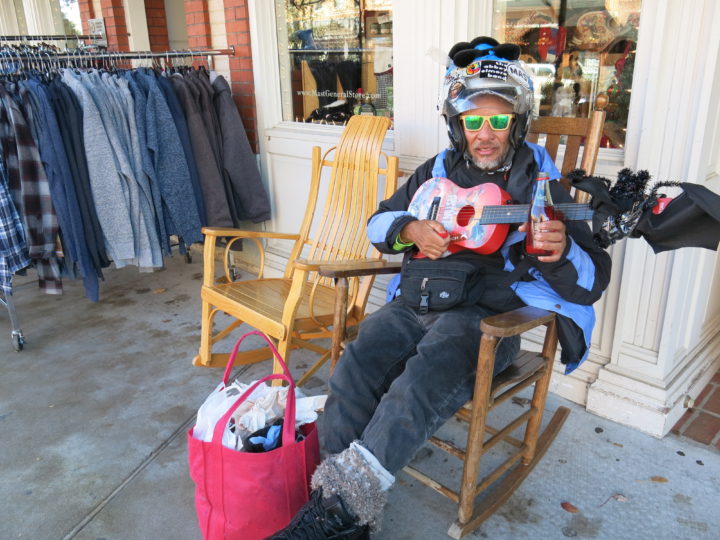
Today’s Main Street, he continues, is a bit more diverse. From used books to pet supplies, from handcrafted Native American jewelry to boutique baby apparel, the city’s main thoroughfare is packed with a variety of practical goods and novel accessories.
“This is one of the most interesting places you can come to,” boasts Case. Local shop owners and city leaders agree.
Yet for many of these folks, a pressing question remains: How does Hendersonville retain Main Street’s charm as the city continues to grow?
Key to the district’s character, they say, are the area’s flourishing local businesses. Along with unique goods, they point out, each shop has an individual story that contributes to the downtown’s quaint feel.
Lose these, community members warn, and you just become Anyplace USA.
Get these books out of here
Several business owners who spoke with Xpress say they gave up a reliable paycheck in order to launch their own specialty shop. Such was the case for Joye McGinnis, who opened Joy of Books in 2010. Before that, she worked for 20 years as an administrator at a local engineering firm.
A longtime patron of used-book stores, McGinnis began dabbling in online book sales in the late 2000s. But what started as a casual side hustle quickly morphed into a large-scale operation. “My husband and I were talking about it one night, and he was like, ‘You got to get these books out of here,’” she remembers with a laugh. “They were taking over the house.”
At first, McGinnis considered renting a storage unit and simply continuing her online sales. But the more she thought about it, the more apparent it became: She wanted to open an actual bookstore. “I didn’t want to work in administration forever,” she says, “and I was getting older.” If she waited much longer, McGinnis worried, the opportunity might pass her by.
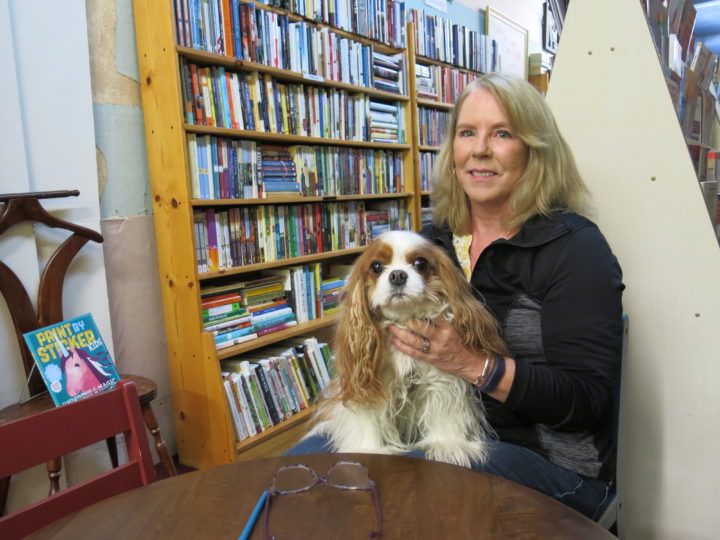
So she opened Joy of Books on Kanuga Road, south of Main Street. Foot traffic was nonexistent, McGinnis remembers, and the slow start led to early self-doubt. “Some days I was like, ‘Oh, what did I do? I gave up a good job with great benefits. Did I make a mistake?’”
Within a year, however, she’d relocated her store to Main Street, where it remains today. Business is good these days, says McGinnis, with a noticeable uptick in sales over the last several years.
She’s also observed more young people working and living in the area. “I think Asheville is getting priced out,” she says. “So you’re seeing a lot of younger families moving this way. Right now Hendersonville is more affordable.”
Not for the faint of heart
At the northern end of Main Street, not far from where Case still plays his nylon string guitar, Maria and Mike Martin are shopping. The young couple moved to Hendersonville in 2018 by way of Asheville. Both work on Main: Maria helps run Wag! A Unique Pet Boutique, and Mike cooks at Shine restaurant.
“The variety in Asheville is cool,” she says. “But I think, value-wise, we’re excited about the growth of Hendersonville.”
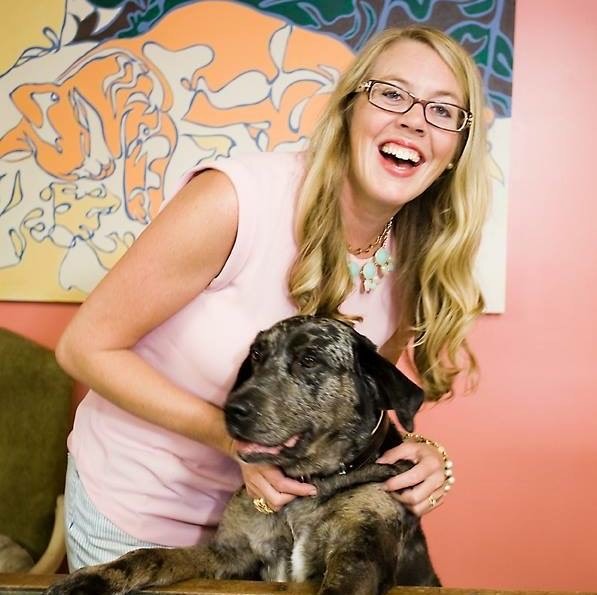
According to the city of Hendersonville’s 2018-19 budget report, the area’s population increased 8.21% between 2008 and 2017 to reach 14,064. City officials project continued growth.
For Wag! owner and Downtown Advisory Committee member Caroline Gunther, though, the more the merrier. Like McGinnis, Gunther launched her business in 2010. “I had always had this kind of shop in the back of my mind,” she explains. “I just thought it would happen much further down the road.”
But a lack of job opportunities in Hendersonville at the time, she reveals, inspired her to get the ball rolling on her business plan.
Soon after launching her shop, however, Gunther discovered that life as a small-business owner “is not for the faint of heart.” Within a few months of Wag’s opening, the city began a multiyear streetscape project, shutting down entire sections of Main Street and even its sidewalks. And though Gunther applauds the city’s efforts to maintain support and communication during those years, her business suffered. “It was very difficult to get through, but the results speak for themselves,” she says now.
Since the project’s completion in 2013, Wag’s sales have continued to improve, says Gunther. During the summer, dog boots were all the rage, and currently, she’s having a hard time keeping pet coats and fleeces in stock. Meanwhile, her raw food selection reflects both consumer trends and overall business growth. “We have six huge freezers now,” she says. Back in 2010, “I only had one very small freezer.”
Still, like many of the entrepreneurs who spoke with Xpress, Gunther acknowledges the obstacles local businesses face — particularly competition from e-commerce and big-box stores.
“But a lot of people do still like to shop locally,” she notes. Shopping online, “You’re not going to get the service that we give,” she maintains. “I’ve spent two years in some cases helping someone figure out what they need for their pets — whether it’s dietary, behavioral, even looking at allergy testing and vet records.”
Her holistic approach, continues Gunther, develops bonds with clients that go beyond a simple business transaction. “There is a lot of emotion surrounding pets,” she explains. “We have customers that lose pets, which is really sad. But we get to be with them through that journey.”
Other local business owners echo those sentiments. Convenience may lead people to shop online, but customer service and community are what draw them back to Main Street.
A growing presence
In 2017, the city’s median household income was $36,620, the budget report notes. Residents’ median mortgage payment was $999, and the median rent sat at $757. Factor in such basic monthly expenses as food, electric, water, transportation, medical and child care, and suddenly there’s not much left rattling in the piggy bank to spend at downtown shops.
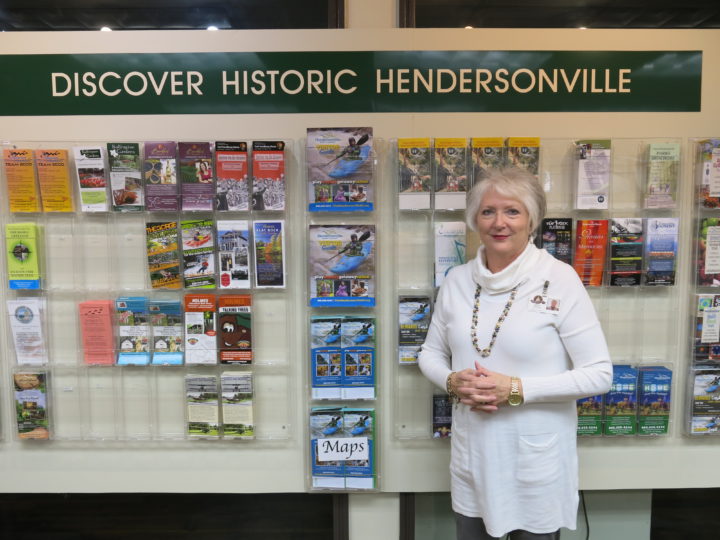
Business owners realize this. They also understand that locals tend to shy away from the district due to a perceived lack of parking. (Several shop owners contested this belief, saying spaces are typically available on side streets, if not along the main drag.)
Thus, many Main Street boutiques rely on out-of-town visitors to survive. “We get a lot of tourists,” says Tiffany Cornett, who owns Emma’s Baby Boutique.
Together, the city and county welcome visitors from over 25 countries each year, notes Beth Carden, executive director of Henderson County’s Tourism Development Authority. Last year alone, she continues, tourism-related industries and services generated roughly $13.5 million in local tax revenues, and in the last seven years, her organization’s budget has more than doubled. Today, Henderson County ranks 14th among the state’s 100 counties in terms of travel impact, Carden reports.
The authority, she explains, promotes the city and county in airports across the country, as well as in travel magazines. “We’ve also been on the Nasdaq screen in Times Square this September, and we’ve been on the ‘Good Morning America’ banner about three times in the last three years.”
Closer to home, the TDA hosts regular workshops to help businesses improve their customer service. Simple interactions, stresses Carden, go a long way. “If I go in a store and no one speaks to me, I’m not going to spend my money there,” she points out.
No second Asheville
Support for the tourism industry isn’t universal, however. As in Asheville, reactions are mixed. Back at Emma’s Baby Boutique, Cornett, who grew up in the area, concedes that the city’s growth can seem nerve-wracking at times. And while she stresses that she’s not opposed to the tourists who frequent her shop, Cornett says she worries about Hendersonville’s future.
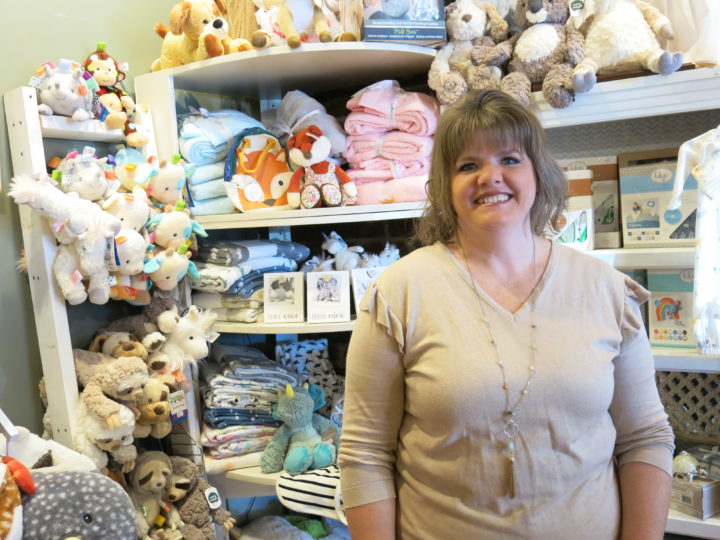
At this point, the hustle and bustle still seem to be concentrated in Asheville, Cornett explains. “That’s what I love about being here: It’s small and quaint. It’s one of those small towns where everybody knows everybody.”
But signs of change are in the air. As in Asheville, a recent increase in property taxes has driven up rents for some business owners. Anita Earnest, who opened All Nations Trading on Main Street in 2008, says her monthly rent increased by $200 in October. The spike is manageable during the busy months, she says, but “It’s going to be a killer for us in January, February and March.”
Lew Holloway, the city’s downtown economic development director, says officials have had dialogue with business owners about their concerns. But the broader significance of those higher property values is a kind of silver lining, he argues. “It’s a symbol of the desirability and attractiveness of the district, which is part of what we’re trying to promote. At the same time, those kinds of things can start to negatively impact the ability of a business to operate.”
In the coming year, notes Holloway, Hendersonville’s City Council will decide the fate of a proposed new parking garage and hotel in the downtown area. He views both components as positives that could help create greater foot traffic on Main Street during the slower winter season.
At the same time, he knows there are skeptics. “Somebody asked me just the other day, ‘Why would you want a downtown hotel? I mean, look at what happened to Asheville,’” Holloway recalls.
He disagrees, however. Downtown Asheville, Holloway points out, has had multiple hotels built in recent years, whereas the proposed Hendersonville project would be a first for the city’s downtown. “I think it is a potential positive at this point,” he asserts. “We’re always looking at how we can continue to have a strong relationship with our local economy. … A certain level of sustainable tourism can certainly facilitate a nice quality of life for the people that live here.”
But the question that Holloway and other community members continue to grapple with, and that no one necessarily knows the answer to, is: How much is too much of a good thing?
Seeing is believing
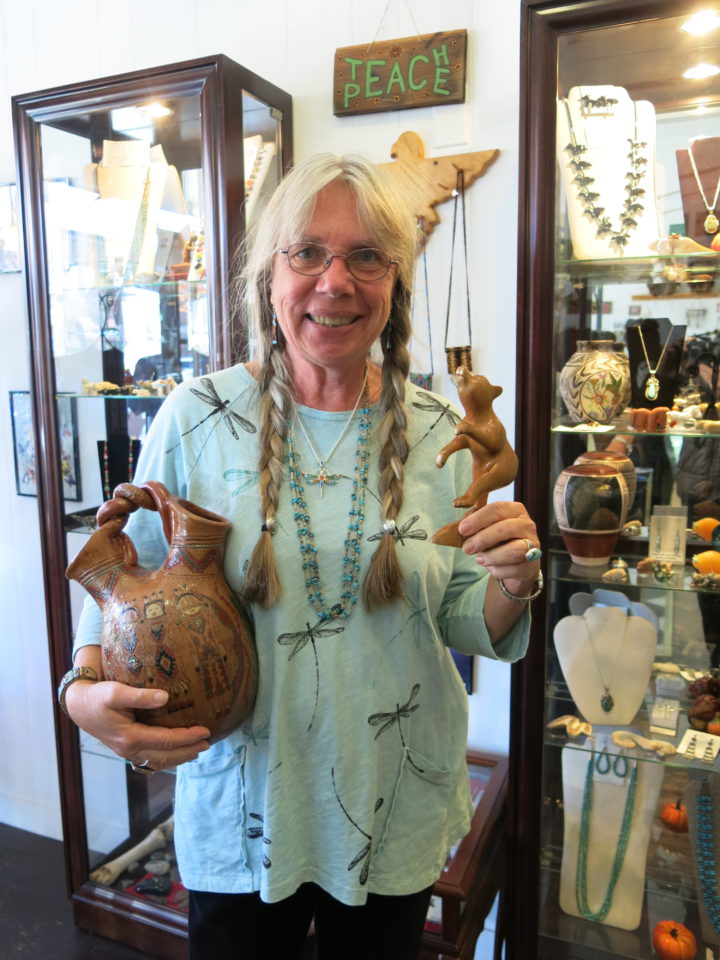
For now, at least, Main Street business owners seem cautiously optimistic about Hendersonville’s future development and growth. To them, the downtown’s quaint feel seems sustainable as long as shopkeepers continue to foster community dialogue and bolster one another’s businesses.
The TDA, Carden maintains, deserves some of the credit for this cooperative mindset. Citing her organization’s ongoing efforts to connect local business owners, primarily through guided tours led by members of her staff, Carden sums up the logic this way: “If I don’t know about your industry, how can I send people your way?”
For many downtown shop owners, though, including more recent arrivals, cooperation just seems to come naturally. In May 2018, Morgan North Futrell opened Moonshine and Magnolias, a home decor boutique. Before the official launch, she welcomed fellow Main Street merchants to a private soft opening.
“We invited them to see what we were carrying,” she explains. “I think that was important, so they knew we weren’t trying to compete with them — that we were just bringing another element to the downtown area.”
For her part, Earnest believes this is a defining trait among Main Street businesses. “We’re a good group,” she says. “There is not competition, really, because everybody has their own little niche that they do. So it’s all good.”
Enthusiasm is also widespread among shop owners and visitors alike.
At Wag!, Gunther shares a recent exchange she had with a German tourist. The man was wandering around downtown early one morning, photographing its historic structures. Gunther, meanwhile, was sitting outside her shop enjoying a morning cup of coffee. The two struck up a conversation, and she learned that he’d photographed small towns across America.
As Gunther sipped and the man continued snapping pictures, he turned to her and said that in 25 years of pursuing his hobby, he’d never been to a town as good as this one.
After taking a few more shots, the tourist asked, “How is this town so wonderful?”
Gunther considered the question and then said: “You know, I don’t know. It just really is.”



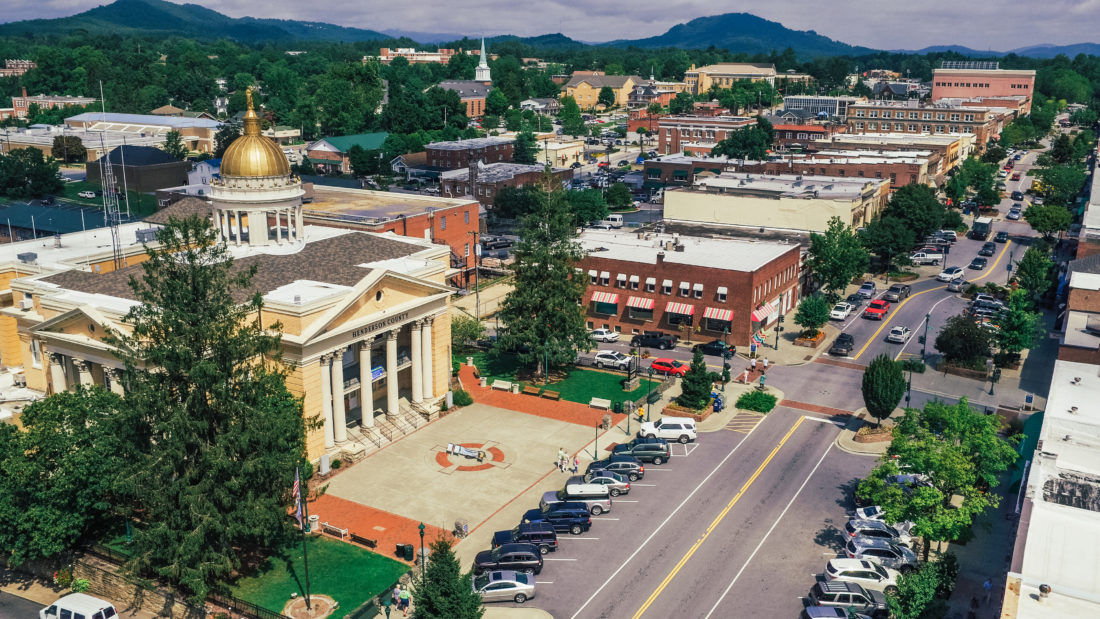
Before you comment
The comments section is here to provide a platform for civil dialogue on the issues we face together as a local community. Xpress is committed to offering this platform for all voices, but when the tone of the discussion gets nasty or strays off topic, we believe many people choose not to participate. Xpress editors are determined to moderate comments to ensure a constructive interchange is maintained. All comments judged not to be in keeping with the spirit of civil discourse will be removed and repeat violators will be banned. See here for our terms of service. Thank you for being part of this effort to promote respectful discussion.